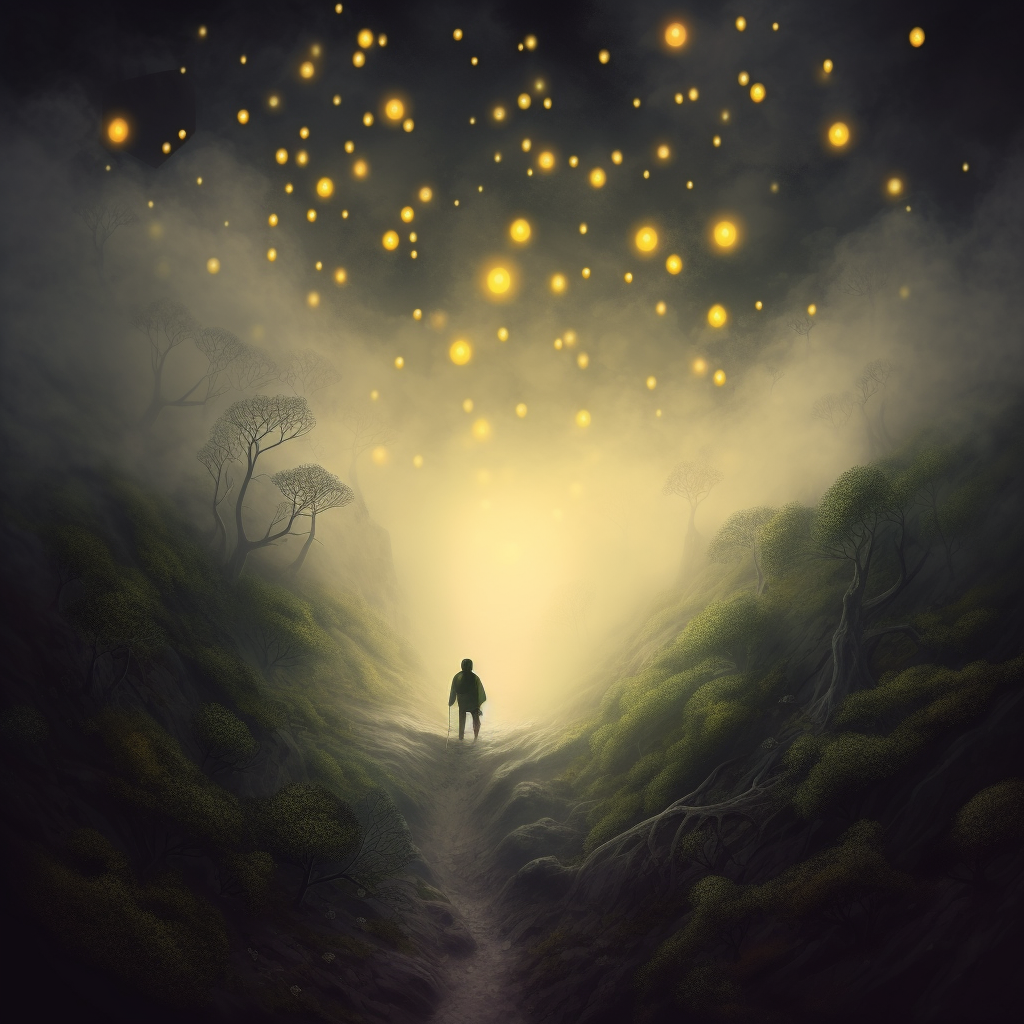
Editor's note: We received a lot of positive feedback for Brie Wolfson's post "How I Got My Brain Back," so we wanted to follow up with another writer's personal account of fighting depression. Engineer Jamie Wong took an analytical approach to his dark night of the soul. He tried many solutions, from supplements to social media fasting to the teachings of Shinzen Young. His thought process, originally penned on his personal blog in 2017, is insightful for anyone struggling with similar questions.
This is going to be a long post, so here’s the TL;DR that I want you to take away. I started experiencing my first bout of major depressive disorder in 2016, and am recovering now in 2017 with the aide of meditation and 75 mg daily of an antidepressant called Zoloft (aka Sertraline). Talk therapy, medication, and meditation have all been important parts of my ongoing recovery.
I recognize that those options are not available to everyone, and I’m fortunate to have the socioeconomic freedom to pursue all of them. I hope this post can help a few people feel like they’re not alone in their struggle. (And thank you to the two posts that did that for me: John Green's "Talk about mental illness and creativity," and Hyperbole and a Half’s “Depression part 2.")
And because it will become blindingly apparent through this post, yes, indeed, I have gone full Valley: I’m an engineer in San Francisco working at a startup, attending meditation retreats, seeing mental health professionals, and went to Burning Man last year.
With that in mind, let’s go:
For most of my life, my emotional life has been pretty healthy. If I think about it in a ridiculously oversimplified good vs. bad feels over time framework, my emotional world might look like this:
At the beginning of 2016, my subjective world started to change.
The Onset
January - March 2016
The year started out on good footing, with motivation for work, exercise, living in a house of good friends, and finally having the chance to live with my girlfriend, Bonnie, again instead of mostly co-existing through walls of Facebook messenger chats and video calls across three timezones.
The first change in my mental health seemed innocuous enough. Standing outside the doorway of one of my housemate’s rooms, I commented that I’d noticed I didn’t have the same visceral reaction to spending time with friends as I used to. He said that sounded pretty weird, and maybe I should seek out therapy. I brushed off the notion, seeing it as a pretty minor problem, and went about my life. Soon, I started to notice the same thing would happen when I would go on hikes. Any visceral sense of serenity was eerily missing.
My subjective world started to look like this:
The second change, though more gradual, was more obviously problematic. Over the course of months, I noticed my general mood decline. I’d have days waking up feeling kind of crummy with no obvious cause. As this evolved, my desire to interact with coworkers over lunch all but vanished. There were many days where I couldn’t bring myself to do it at all, so I hid in small single-chair rooms reserved for video calls.
The whole graph shifted down.
The last change was downright disturbing. I’d look down at my hands and experience them as just these objects I control. I’d look in the mirror and see a person that I rationally knew was me, but had no visceral sense of recognition. Photos of me in the past felt like looking at a bizarre alternative timeline that I could remember but not feel. From searching around, the best terms I’ve found to describe this are “dissociation” or “depersonalization."
By the end of February, I knew something had to change.
So I did the first thing that enters any Valley yuppy’s head: quit my job to go travel the world to try to find myself. March 25th, 2016 was my last day at Khan Academy.
Caption: A few of the great folks I worked closely with at Khan Academy
By March 31st, I had landed in Hong Kong on a one-way ticket.
Travel is not a silver bullet
April - June 2016
This is not a post about how travel helped me face my inner demons or expanded my comfort zone or created lifelong friendships. Travel has done wonders for me in the past, but it’s not a silver bullet for mental health.
As my general mental health deteriorated further, a perverse reversal took place.
See that dip to the right of the green line? Yeah, that’s not normal, and it merits some explanation.
When I went to Hong Kong in 2014 with some friends, I remembered a distinct feeling of serenity standing in the Nan Liang Garden.
The sky, the trees, and the pagoda all brought me comfort, peace, and a sense of gratitude for the world.
When I returned in 2016, here was my initial feeling: nothing. I might as well have been standing in the parking lot of Walmart. That reaction would explain a flatline, but why was there a dip?
Let me show you an excerpt of the internal chatter of a chronic ruminator.
- “Hey, I remember being here, last time it was super great.”
- “Hmm, this time I don’t think I really feel the same connection.”
- “Maybe I just need to relax more, let me give that a try.”
- “Nope, still nothing. Well that’s disappointing.”
- “Well if this doesn’t lift my mood, maybe nothing else will.”
- “Why am I thinking this way, it’s self destructive — I should stop thinking this way.”
- “I’ll bet this is going to happen every time I go anywhere nice that I’ve been before.”
- “What’s wrong with me? Am I going to be like this forever?”
- “What’s the point of living if I can only experience good things in a superficial way?”
Positive experiences had now become an exercise in “let’s painstakingly analyze how deeply broken my emotional mind is." Not the most constructive internal dialogue.
Every time anything good would happen, I would cling on as hard as I could to any positive aspect of it, then be intensely distraught when it would inevitably fade almost immediately after I had left the experience.
Perhaps the most soul-crushing parts of the trip were the periods where I actually did feel better for days at a time. Each time it happened, I had this gloriously optimistic thought: “Maybe it’s over. Maybe I’m going to feel normal again from now on!” And each time I could feel my sensitivity to the world receding, it felt like a force pulling away everything good in my present and future. I could never figure out a way to return to that feeling of normalcy. Once, I felt that lucidity kick in for about 10 minutes during a car ride, then mysteriously vanish right afterwards.
Travel had, in previous long trips, been about novel experiences and collecting stories. But now novel experiences were just one more opportunity to scrutinize my reduced sensitivity. And collecting stories isn’t much fun when they don’t feel like your own stories.
So, after hopping on and off planes for a few months, I returned to California to look for work and seek professional help.
Therapy & tears
July - September 2016
I’m fortunate to have had enough friends, family, and acquaintances share their experiences going to see mental health professionals that I had a significantly reduced mental block for pursuing help. I hope I can take one more brick off that wall for those reading this.
On advice from my friend David, I emailed four different therapists asking for a free 15 minute phone consultation (these consultations are available from most therapists). They replied to set up times, and I found that for the half hour leading up to each calls, I was basically non-functional and reverted to lying in bed watching Key & Peele videos on YouTube to curb my nervousness.
During the first of the calls, I described my problems, and the person very politely said that yes, they thought it was something they could probably help me with. That seemed like a positive signal to me, but I figured I’d wait to hear from the other therapists.
On my next call, I spoke to a therapist near Redwood City named Sandy Lillie. I described my problems, and she very matter-of-factly told me it sounded like I had been through something traumatic and had emotionally shut down.
Unless you’ve been there yourself, it’s hard to appreciate how validating it is to hear from an authoritative source that yes, you do have a real problem. It’s not just “part of getting older” or a “slump," it’s a real problem that can and should be addressed.
That validation was so powerful that I spent the next half hour as a teary mass under the blankets in my room. I cancelled the rest of the phone consultations and booked my first 75 minute appointment.
During the first appointment, I told Sandy about my relationship with Bonnie, my family, and a bit about how I view myself and work.
I cried. A lot. Like half a waste basket full of tissues a lot. The most surprising part to me was not that I cried, but when I cried. Areas of my life I had never considered as harbors of pain were being poked and prodded and all their juicy bits were spilling out of my eyeballs into the ample supply of Kleenex provided.
I’m grateful at this point that I’ve been keeping journals for years and occasionally taking the time to put a stream-of-consciousness dump in there, because I find it remarkably difficult to remember how I felt at a given time. Thankfully, I can have July 2016-me tell the story of driving home after my first appointment:
When I got in the car and started driving back, I found myself in this bizarre state between laughing and crying half of the way back. Then I started worrying that we had a flat and was running low on gas so my brain started focusing on practicalities again. For a little while there, it almost felt like the symptoms of dissociation were fading, and that I could experience the beauty of the landscape I was driving through.
I’m going back again on Monday. That feeling of laughing and crying is incredible.
After every few sessions of therapy, I’d have a huge emotional release. It felt like there were these buried pressurized tanks of feelings that were being dug up and punctured. Whenever it happened, I felt genuinely better in a sustained way for a few days.
When I noticed this trend, I started to go hunt for things in my past for emotional release outside of therapy sessions. I read journal entries from up to 4 years past to try to extract some nourishing tears. Perversely, whenever I noticed myself feeling especially dead, I’d go hunting for ways to make myself cry. It really was true that feeling something other than “dead” or self-pitying was significant.
Every time I did this though, the relief period got shorter and less intense.
Until I ran out of past sadness to extract.
The only thing I would cry about was how dead I felt, which, unlike digging up my past, did not feel cathartic at all. It felt pathetic. Useless. Shameful.
Feeling supported
August 2016
At that point, I started feeling deeply disconnected again. I realized that my visceral connection with Bonnie was all but gone, and that she could feel it too. I told her that when I looked into her eyes, I wanted desperately to feel connected.
People talk about eyes acting as the windows into people’s soul. Through them, you see your past experiences with the person, your future plans, your shared hopes, and the struggles you’ve overcome together.
But all I saw was glass.
It was the difference between reading a love letter and staring at illegible pen scratches on a piece of dead tree. The difference between your home and a house staged for sale. A baseball caught from a home run versus one bought at the store. In each case, each item of the pair are objectively the same, but what they each represent is fundamentally different.
We talked about our future, and she shared her vision for it. I admitted I couldn’t see it. She asked if I wanted to keep trying. I said yes. She asked why. I struggled.
Here’s August 2016-me’s account of what followed:
I squirmed uncomfortably, feeling dread that I didn’t have an answer, until it rushed back with “I want to go back to Kitchener." And I sobbed. Hard. [Kitchener was the first place we’d lived together — we shared an apartment for 11 months starting in 2014.]
After I said that, and kept crying, I felt like I could connect to my past. I felt like me. I felt like I found myself underneath this judgmental voice in my head. I talked about good times in Kitchener. Cooking together, going to the grocery story together, rock climbing together. I told her I just wanted the simple life back, and wanted to be a kid.
…
I could feel it go in and out. I could feel the true part of me come back to me, then recede behind whatever’s blocking it. When it was there, memories of the past flooded back to me, and they felt like mine. I was able to recognize myself in the past. I told Bonnie that everything felt smaller when I felt like myself. Like we were kids.
I told her I was afraid we couldn’t go back. But that I wanted to try. And I was afraid that the morning after, I wouldn’t be able to get back to this. Bonnie told me that she thinks she does get a visceral reaction from looking into my eyes, but hasn’t seen anything there in a while.
After using up nearly all the toilet paper for our tears, and after I felt like the real me had receded back behind the barrier entirely for the night, we crawled into bed and went back to sleep.
The next day I felt dead again, but from then on I knew that Bonnie understood there really was something wrong with me. I had support.
Someone close to me finally knew I was honestly trying.
Therapy & pure rage
September 2016
Around this time, I went to Burning Man. Emotional overwhelm is a hallmark of that experience, and upon returning I had a new insight into my emotional life: I am absolutely awful at productively expressing anger.
Sometime during high school, it became apparent to me that my default reaction mode while angry was to lash out, and that was less than ideal. As the introspective voice in my head expanded its domain over my life, at some point anger came under its purview. The voice’s approach was to try to explain to me why anger was not the productive response to situations, and why my anger was irrational and unfair most of the time.
To some extent, this is a useful skill, but I didn’t realize just how much I had bottled up until my fifth therapy session.
During that session, Sandy asked if I could role play talking to a specific person that had deeply hurt me. I agreed, and as I started to express myself coldly, Sandy pushed me to be more expressive.
Here’s September 2016-me recounting what followed:
I could feel my whole body trembling with rage, and could feel myself fighting internally to express it. Sandy tried to encourage me to put some volume behind “Fuck You," but I found it was too hard for me. Instead, I said it quietly between tears. Eventually, I managed to hit a threshold, and started screaming. No words, just raw, vocally expressed anger. I think I did that for about half an hour, almost until the end of the session. When I opened my eyes, the world felt a little bit more vivid again, like it did after the first time I had a long crying session during therapy.
It’s hard to describe the sound I made during that session. I had definitely never heard that sound come out of a human, even in movies. It didn’t feel so much like something I was doing as it did like a compressed demonic gas rapidly exiting my throat, dragging claws along my vocal chords on the way out. It wasn’t the last time I heard that sound.
The experience of the following two weeks or so was predictable:
By November, pretty much nothing seemed to be helping, and I’d begun to experience significant social anxiety even when I was in groups exclusively composed of friends I’d known for years. My general mood decline had also steadily continued, with probably a day or two a week starting out in bed crying for no discernible reason.
When I say “for no discernible reason," I don’t mean that I had some minor bad experience that I was blowing out of proportion, I mean that between sobs I was contemplating what was externally wrong and couldn’t think of a single thing.
Have you ever tried to comfort someone who feels like crap for no reason? It’s not such an easy task.
Meditation
November 2016 - Present
For American Thanksgiving, I had a friend, also coincidentally named Sandy, over for dinner. Sandy was the second of my friends to become a dedicated meditator, and had spent a lot of time digesting hours and hours and hours of meditation audiobooks. He’d seen such dramatic improvements in his life from meditation that he was getting interested in trying to share some of those benefits with friends (or honestly, with whoever would listen).
When I told him how I was feeling and he suggested meditation, I was initially a little hesitant. I’d meditated fairly regularly using the Headspace app at the end of 2015, but had stopped once depression had set in for two reasons. The first was that I felt even more disconnected from the world after each meditation session than before, and the second was that when my mind felt scattered, the meditation sessions just seemed to repeatedly emphasize to me how little control over my brain I did have.
Sandy helped me a lot with the second objection by reframing meditation for me. He told me that the immediate goal during meditation is not long-held focus, it’s to notice when it drifts away. This sounds like a trivial difference, but it was key in how I responded to my mind drifting.
Each time my mind drifted before, I’d feel like I was failing and would be upset by how scattered my brain was. After the reframe, each time I’d notice it drift, I’d have this feeling of “Aha! I noticed! I succeeded!”
With this framing, the world became just slightly more vivid after each session. It was still frustrating a significant amount of the time both during and after the session, but it paid off in the end. My mood began to stabilize back to where it was a few months earlier.
After meditating, I still wouldn’t generally feel like seeking out social interaction, but at least I didn’t dread it.
In December 2016, I had what I’d consider my first major mood reversal due to meditation. The context was that I was feeling terrible and having a hard time finding a quiet place to meditate because of roommates. Eventually, I locked myself in the bathroom with the fan on to drown out any sound and sat down to meditate on the toilet.
Here’s my journaled account of what happened that night during meditation:
Get very frustrated at night and break down and cry, but manage to break the cycle! Another part of my mind broke the downward spiral by repeating “You didn’t give up!” over and over and over again until the tears stopped and I felt happy again. I looked at face covered in tears and snot in the mirror, and was okay with what I saw :)
Despite the occasional boost from meditation, I was still feeling generally horrible on the whole. When I went back home for Christmas, I discovered that my social anxiety extended not only to friends, but also to family. I found myself frequently wanting to exit conversation with my parents and barricade myself in my room. I spent a lot of time using my terrible coping mechanism of burying myself in information through page after page of reading Reddit.
Antidepressants
January 2017 - Present
By January 2017, I turned to the option I told myself I would only turn towards if nothing else had worked: medication.
After the last visit to my therapist, she told me that from all the things she had heard from me, she could understand why I felt pain, but not of this magnitude. The struggles I had were real, but not uncommon. She suggested that it might be wise to try medication, and told me I’d need to go see an MD for that since she couldn’t prescribe medication (she has a PhD in Clinical Psychology).
From contemplating it for a year and going through therapy, I was able to precisely articulate what my emotional world looked like, and in two sessions with a psychiatrist, I was diagnosed with Major Depressive Disorder. He offered many potential treatment paths, among them medication.
On January 20, 2017, he prescribed me 50mg daily of Zoloft, with a 25mg daily ramp up period for a week. He told me that I shouldn’t expect to see any benefit in the first two weeks, and that was just a trial period meant to evaluate whether the side effects were tolerable.
Despite seeing medication as a reasonable option for other people, the first day of starting medication still felt incredibly hard. In part, it was because I was afraid of side effects like suicide ideation. Thankfully, suicidal ideation and urges have not been part of my particular flavor of depression.
The other part of the internal struggle was that it felt, in some ways, like admitting that I was entirely broken, and had failed to heal myself because I was weak. “Weak and useless” were a recurring pair of words in my journals and internal dialogue for most of 2016.
I don’t think I would’ve had the courage to start if it were not for support from family and for reading John Green’s post about his mental illness.
I know almost the exact point where the medication started working. It was late at night on January 26, 2017.
I was feeling pretty shitty through dance and afterwards, but decided I should meditate at home. After I did, I felt better. Near the end of the meditation, I wanted to give up, but didn’t let myself. Just as I previously had a voice tell me “You didn’t give up”, this time I had a voice tell me “You will get stronger” and repeat that over and over again.
The day after that, I felt better too. And the day after that.
I’d been burned by previous desperate optimism, so I was hesitant to believe this was truly the beginning to a sustained period of emotional stability.
But now, four months later, I can fairly confidently proclaim: I’m stable.
Interestingly, one of the first things to vanish as the result of the medication taking effect was any aversion to taking the medicine. Seeing it as a personal failing that I couldn’t work through myself started seeming as ridiculous as having an aversion to eye glasses because it demonstrates a failure on your part to will your eyeballs to reshape themselves.
In 2013, there were more than 41 million prescriptions of Zoloft alone, and that’s just in the US! That’s more than 1 for every 10 people in the country! What a bizarre thing to feel a social taboo over.
That said, there is something unsettling about the fact that after a year of struggle, tears, disconnection, existential crisis, and generally shitty feelings, the catalyst for recovery is half the size of a penny and costs me about $25/mo after insurance.
Brain chemistry is a hell of a thing.
Restarting life
February 2017
Once I became more confident I was emerging from depression, I realized that I had to actually make some choices in life again. Up until that point, my decisions about what to do were largely guided by: “What is the least likely to cause catastrophic mental meltdown?”
Trying to change any of my negative habits was totally out of the question, since failing to do that would’ve been a crushing sign of additional failure in a life that felt full of weakness and uselessness.
But once I started recovering, I had a newfound certainty that for most plausible things that could happen in the external world, my internal world would be okay. So I started to make changes.
The first thing to go was the emotional crutch I’ve held for years of drowning myself in information to plaster over things I don’t want to think about. I quit my Facebook news feed, Twitter, Hacker News, and Reddit cold turkey. More generally the rule is to stay off sites that are infinite time sinks (which usually have “engagement” as their core metric). “How Technology is Hijacking Your Mind” is a great overview of how horribly misaligned many technology products are with the best interests of their users.
With the exception of a few days checking Twitter while at a conference, I’ve stayed completely off since February 5th. The time was replaced by watching educational content on YouTube, and reading books. When I get stuck at work, I just get up and walk around, maybe grab a healthy snack, maybe chat with coworkers.
It was interesting to see that in the first three weeks or so, I still had a compulsive habit of unlocking my phone and searching for those applications. I would opening Chrome and start typing “reddit.com” or “news.ycombinator.com,” before catching myself and closing it. I did this several times a day, which demonstrates oh-so-clearly to me how much of a compulsion it was and how little rational decision making went into the use of those websites.
Even now, four months later, I occasionally find myself sitting in front of my computer mentally cycling through all the sites I used to frequent to figure out which one I haven’t looked at in the last hour. Thankfully, I usually now have the sense to just close my laptop when I notice this happening. I suspect I’m much more aware of when this is happening due to the mindfulness meditation practices I’ve been doing.
The second thing was to organize my goals revolving around a monthly theme. Last month was “friends” — I enjoyed spending time with friends again! I decided to invite friends over to cook with, and reached out to some friends to video chat, one of whom I hadn’t talked to in years. It was great.
Meditation May
May 2017
May’s theme, now just finishing up, was meditation.
You might be wondering why I was still pursuing meditation when it had seemingly fallen far short of the improvement seen via pharmaceuticals.
Well, for starters, I consider the pills to be a catalyst for stability, but I suspect meditation had a lot to do with the rate of improvement. I started seeing benefits in the first two weeks, when I was told to not expect much until week 4-6.
Secondly, I don’t want to take pills forever. The recommended period is to stay with the dosage for a year after the depressive symptoms subside, and I’d like to do whatever I can to prevent relapse once I stop medicating. That said, if I had to choose medicating forever vs. dealing with depressive symptoms forever, I’d choose medication hands down. I’d just rather do what I can to deal with neither ☺️. Mindfulness meditation seems to be one of the few things with statistically significant results in preventing remission. One study found that it was as effective as maintenance level dosages of antidepressants for preventing remission.
Lastly, and perhaps most critically, the pills boosted and stabilized my baseline mood, but things still felt a bit off.
Before the pills, I would feel shitty for no apparent reason. Afterwards, I would feel pretty-okay for no apparent reason. Pleasant experiences no longer had the perverse negative effect they previously had, but they also didn’t deliver much by way of connection or lasting joy.
But why would I expect meditation to help with this? Isn’t meditation only helpful for de-stressing or halting incessant mental chatter?
To explain, let’s talk a bit about lunchtime.
Eating mindfully
Let me describe the process of eating as it routinely took place for me in years past.
Once seated to eat, I’d collect a spoonful of food, and, if I’m lucky, stay focused long enough to taste the first bit going into my mouth. For each bite after that, some part of my brain would be scheduling my day or planning for the future or replaying an awkward encounter from the previous day. Another part of my brain would be guiding my eyes to provide enough visual information for my hand to construct a continuous stream of sustenance to be delivered to my mouth, as my teeth and throat work in tandem to get those nutrients to my stomach. That leaves just about…. zero percent of my conscious brain to actually taste the damn food. Unsurprisingly, this meant that most meals felt unremarkable.
Now I try to do the following: collect a spoonful of food, look at it carefully, focus visually on what I’m about to eat. Next, put it in my mouth, and focus on the taste and texture of the food, ideally with my eyes closed. Once I’ve fully tasted it and swallowed, only then do I go in search of my next bit of food to eat from my plate and return to step one.
This might seem silly or trivial, but give it a try on your next meal, even if it’s just your morning toast. You might discover how little you’ve been tasting your food too.
So what does this have to do with meditation? Everything! Meditation can systematically cultivate your capacity to concentrate on the most presently relevant thing. The critical bit needed to enjoy the taste of your food is the ability to repeatedly and gently return your attention to the thing that’s most important in the current moment.
In the book “The Mindful Way Through Depression”, the authors describe the experience of one depressed individual mindfully eating a single raisin:
“I was very aware of what we were doing. I’ve never tasted a raisin like that before. Actually, I’ve never noticed what a raisin looked like. At first it looked dead and crinkly, but then I noticed how the light struck it in different ways, like a jewel. When I first put it in my mouth, it was hard at first to stop myself from instantly chewing it. Then, when I was exploring it with my tongue, I was able to tell which side was which — but there was no taste. Then when eventually I bit down on it — wow, it was absolutely amazing. I’d never tasted anything like it.”
During his lectures at the meditation retreat I recently returned from, our teacher, Shinzen Young, recounted the story of how he first knew his meditation was bearing fruit. Every morning at the monastery in Japan, their breakfast would be the same thing: plain rice porridge with no seasoning. One day he woke up and realized he was excited for his morning rice porridge. Shinzen grew up in California, and yet he couldn’t remember being as excited for Belgian waffles with syrup, fresh hash browns, and fresh squeezed orange juice as he was for this bowl of rice and water.
Through meditation, it’s possible to systematically cultivate control over your attention in ways that will allow you appreciate everything in life in a deeper way.
Return of sensitivity
After meditation, I notice that everything just seems more interesting. The position of birds wings as they swooped, the complex cacophony of sounds everywhere I go, the feeling of my bedsheets on my skin, the feeling of my shoe when I first slip it on, even the stucco pattern of the walls in my apartment.
As I’ve racked up hours of meditation over the last few months, I’ve noticed that the interesting-ness of everything tends to be present to a small degree even when I haven’t meditated in a while. It’s always subtly there in the background.
An even stranger phenomenon that I haven’t quite reached, but that I have friends that can attest to is this:
I won’t say too much about this, but suffice to say I have a friend that now actively seeks out opportunities to eat uncomfortably hot peppers by themselves, or to sit for a while without a shirt in a snowstorm, and emerge from it quite happy. Personally, I’ve come to see that I can quite enjoy freezing cold showers.
What didn’t work for me
I tried a number of things that I didn’t dedicate sections in this post to because they didn’t do much good for me.
Exercise
Exercise, while I’m sure good for my muscles, didn’t have a clear positive impact on my mental health. On days where I didn’t perform as well at the gym as I’d hoped I would, it generally felt net-negative. The evidence for exercise combatting depression does seem pretty strong even when compared to Zoloft/Sertraline specifically, but that may be because the study group was starting from a baseline of relative inactivity, whereas I think I was already comfortably getting more than the recommended 30 minutes of exercise 3 times weekly.
The act of scheduling exercise on a regular basis and setting goals was, however, quite helpful. I would plan out my entire day hour by hour to prevent decision fatigue which could bring my day to a lying-on-the-floor-staring-at-the-ceiling halt.
Here’s one such schedule from my journal:
7:30am wakeup, brush teeth, smoothie 8:00am drive to gym 8:30am gym 9:45am drive home 10:00am shower 10:10am 10min headspace 10:20am setup time machine hard drive downstairs 10:30am watch ML while eating peanut butter toast 12:00pm lunch, eating lentil soup, continue watching ML 12:30pm 10min headspace 12:40pm Work on signed distance fields blogpost 5:00pm Dinner: lazy fried rice 6:00pm Walk to MV caltrain
Supplements
I tried taking high EPA fish oil and vitamin D supplements since they’ve both been somewhat effective for treating depression in studies. I didn’t notice any significant effect, and the fish oil was especially uncomfortable for me since I’m vegetarian, so I stopped. Some of the studies suggested that the fish oil was only effective for people already on antidepressants, but I had already stopped taking the fish oil once I started on Zoloft.
Talking to friends
I really wish that I found talking to friends about depression helpful, but I can’t honestly say it was. This was really only helpful to the extent that I felt I could help others seek help for their own conditions and to the extent that it encouraged me to seek help for myself.
There’s a special kind of frustration in knowing that you have friends that want to help you and not knowing a single thing they can do to help. I found that talking about my depression generally left me feeling self-pity afterwards, and not at all more understood, despite the earnest efforts of many friends.
Learned optimism
I sought out the book “Learned Optimism” after it was described in a conference talk by Reginald Braithwaite, but quickly found that the description of depression in that book didn’t align with what I was experiencing. I found the descriptions in “The Mindful Way through Depression” much more relatable.
Closing thoughts
So that’s my journey so far. Come next year as I try to step away from antidepressants, I might have more to say. I consider myself quite fortunate to have been so responsive to pharmaceutical treatments at relatively low dosages with no noticeable side effects, and recognize that it’s not smooth sailing for everyone that chooses to pursue that path.
If you’re interested in reading more about meditation, I recommend Shinzen Young’s “See, Hear, Feel” introduction. It’s long, but pretty information dense. If you can’t be bothered to invest so much time up front, Headspace has a low initial commitment. If you’re interested in retreats, you can find the schedule of his retreats here: Retreats - Shinzen Young. I appreciate that he doesn’t ask you to dogmatically believe much of anything — he’s largely decoupled meditation practices from their religious doctrines, and hasn’t sacrificed depth of knowledge in the process.
Best of luck out there in the world — it’s a tricky place!
Author bio: Jamie Wong was an early software engineer at Figma, and is now exploring climate tech at South Park Commons and co-hosting the emotional communication podcast Vulnerability Junkies. His latest article “For Sale: A Promise to Remove Invisible Gas” is about the organizations working towards sucking billions of tons of carbon dioxide directly out of the air.
The Only Subscription
You Need to
Stay at the
Edge of AI
The essential toolkit for those shaping the future
"This might be the best value you
can get from an AI subscription."
- Jay S.
Join 100,000+ leaders, builders, and innovators

Email address
Already have an account? Sign in
What is included in a subscription?
Daily insights from AI pioneers + early access to powerful AI tools
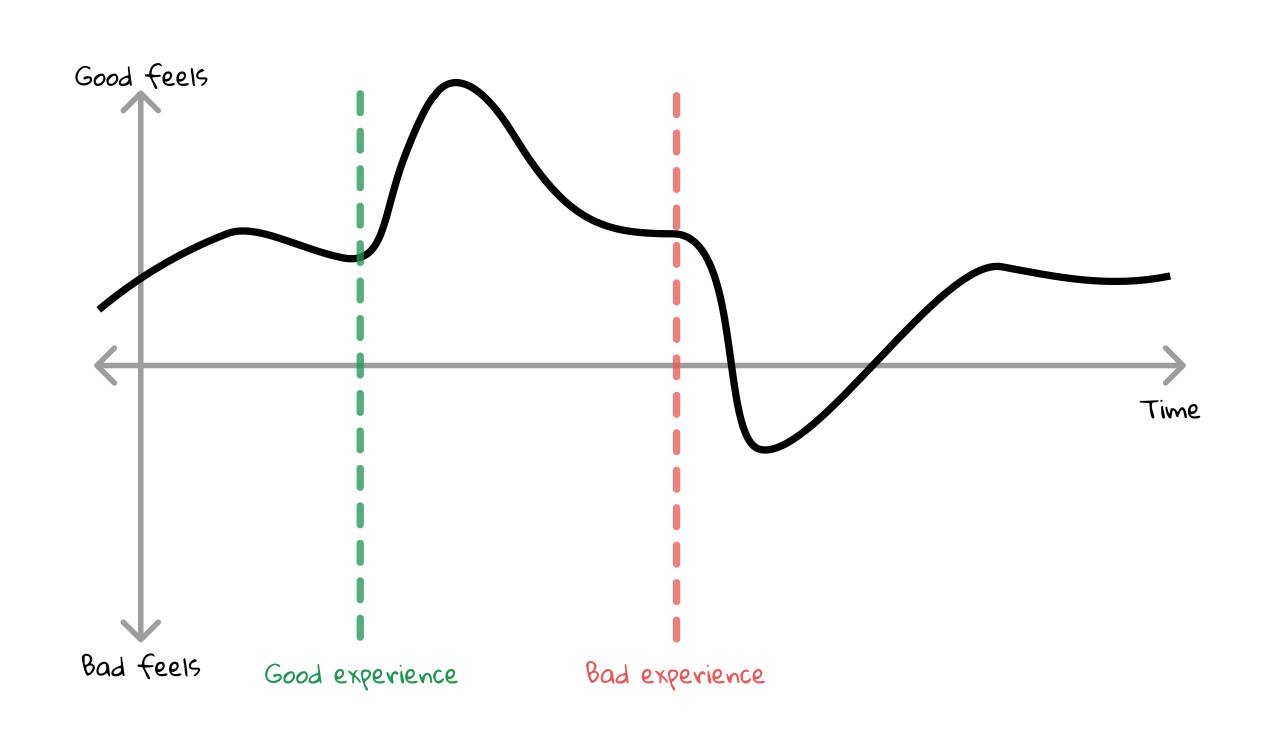
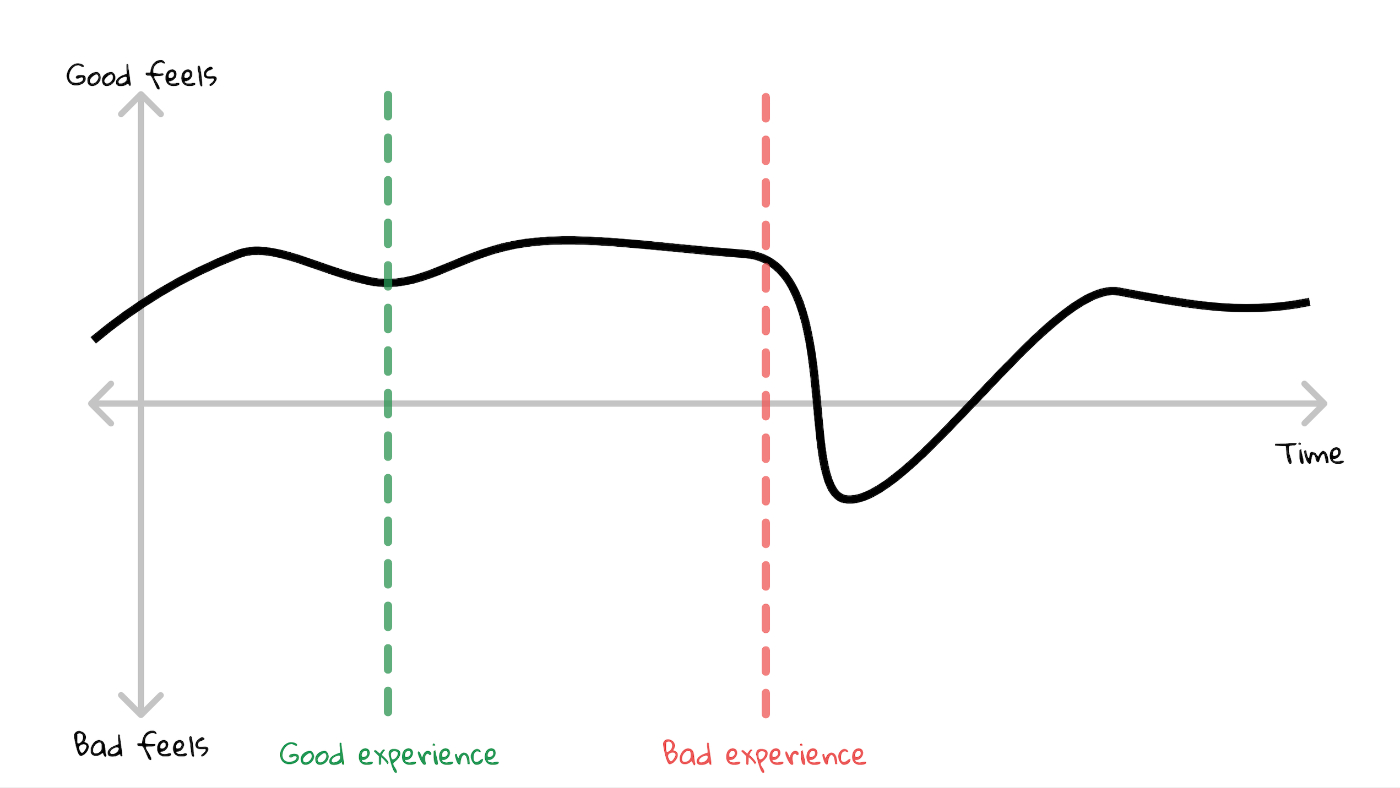
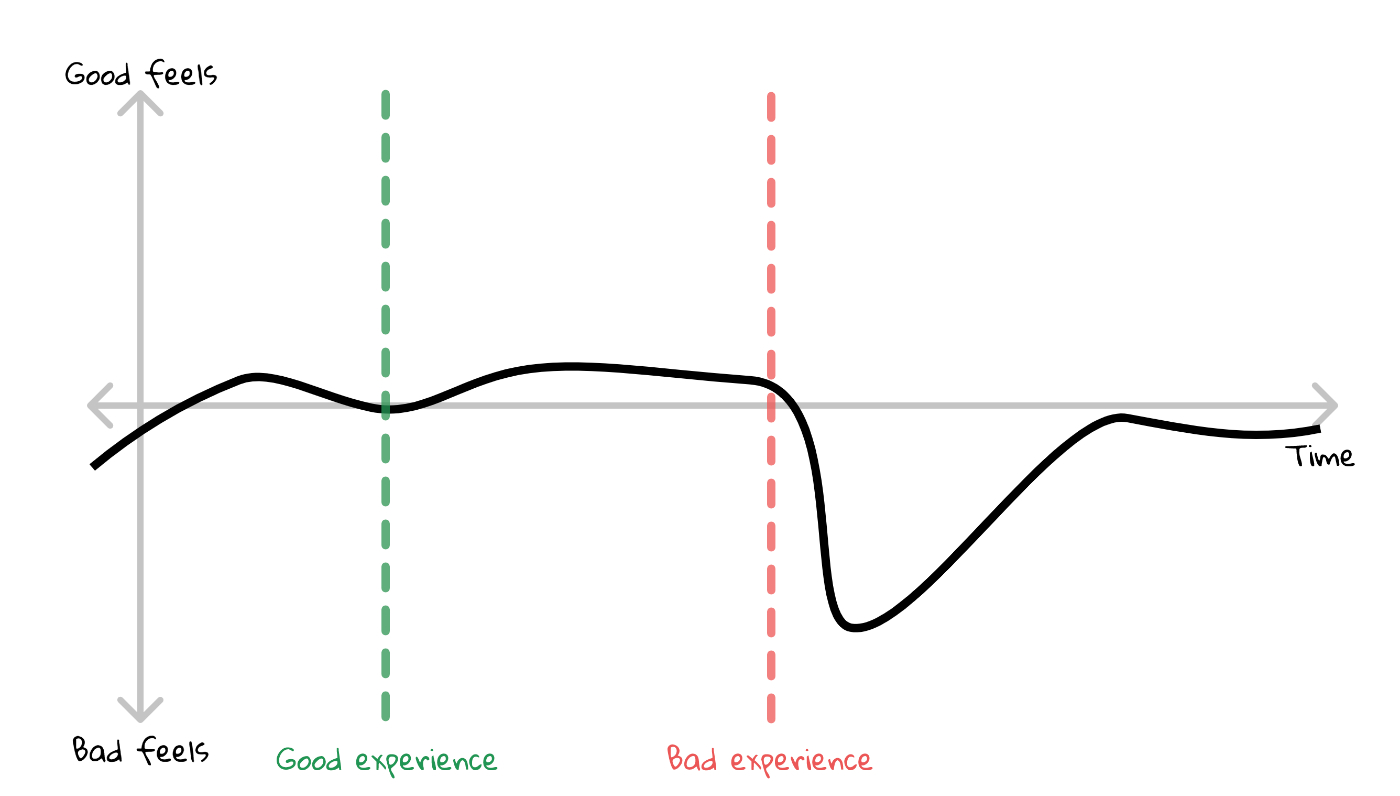
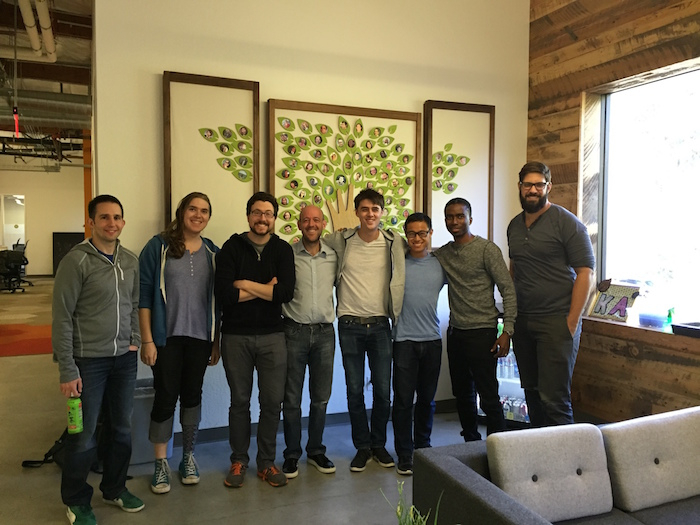
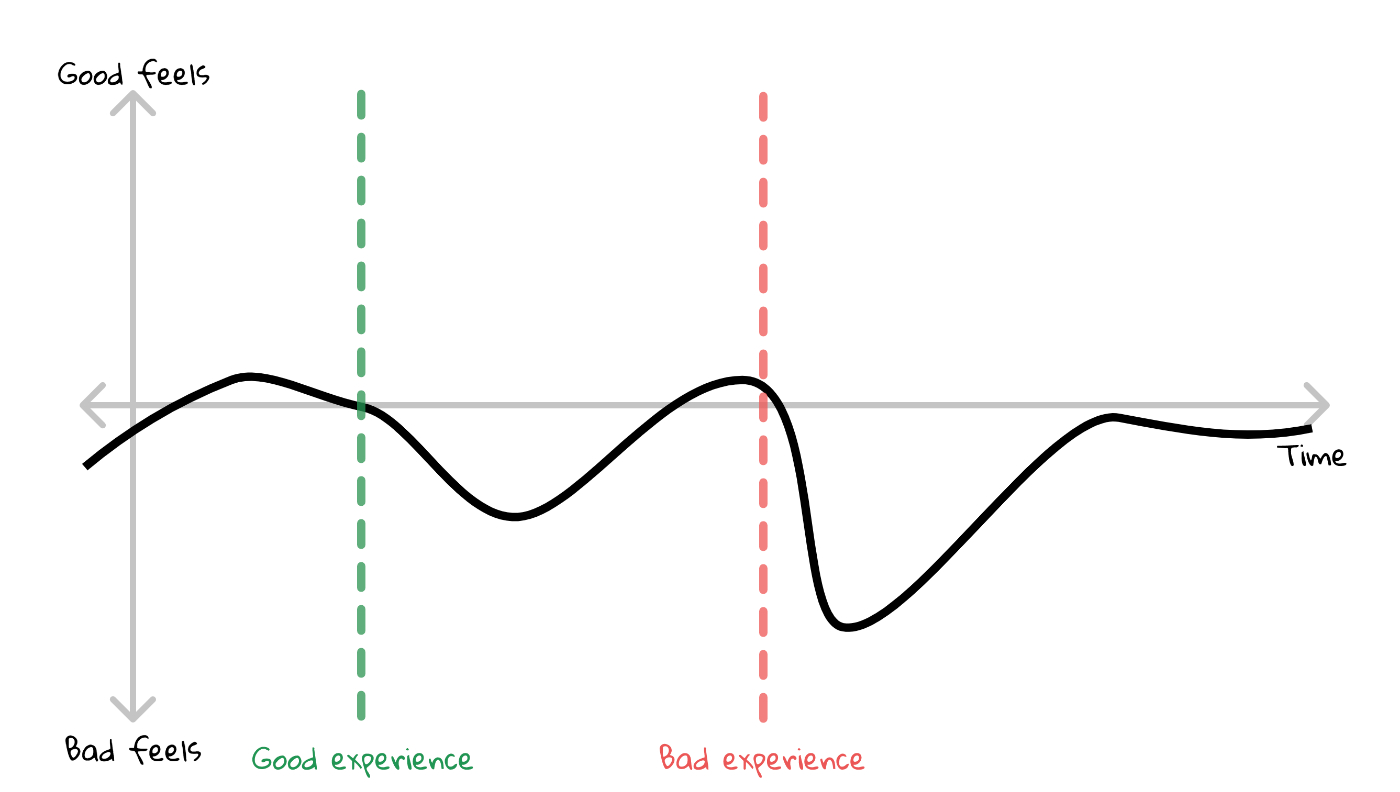

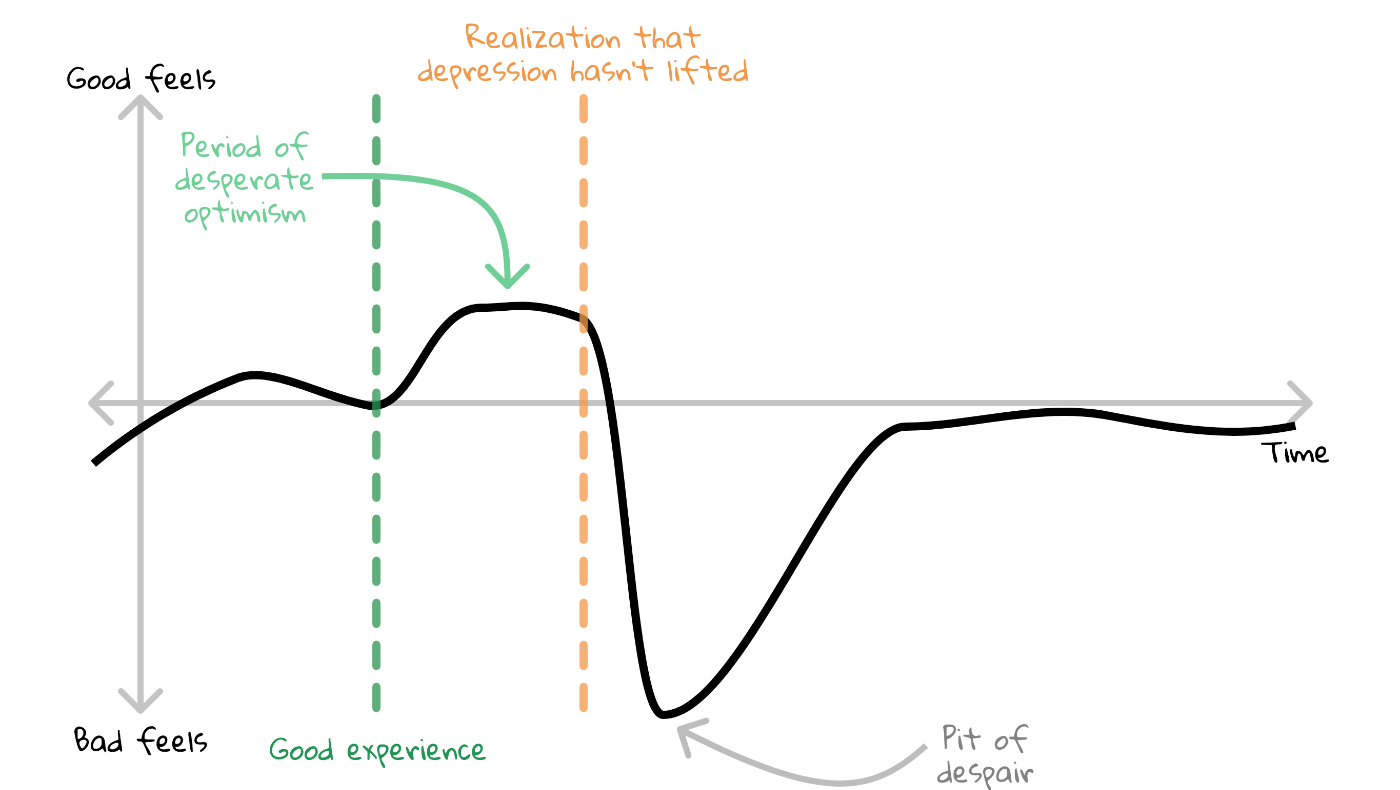
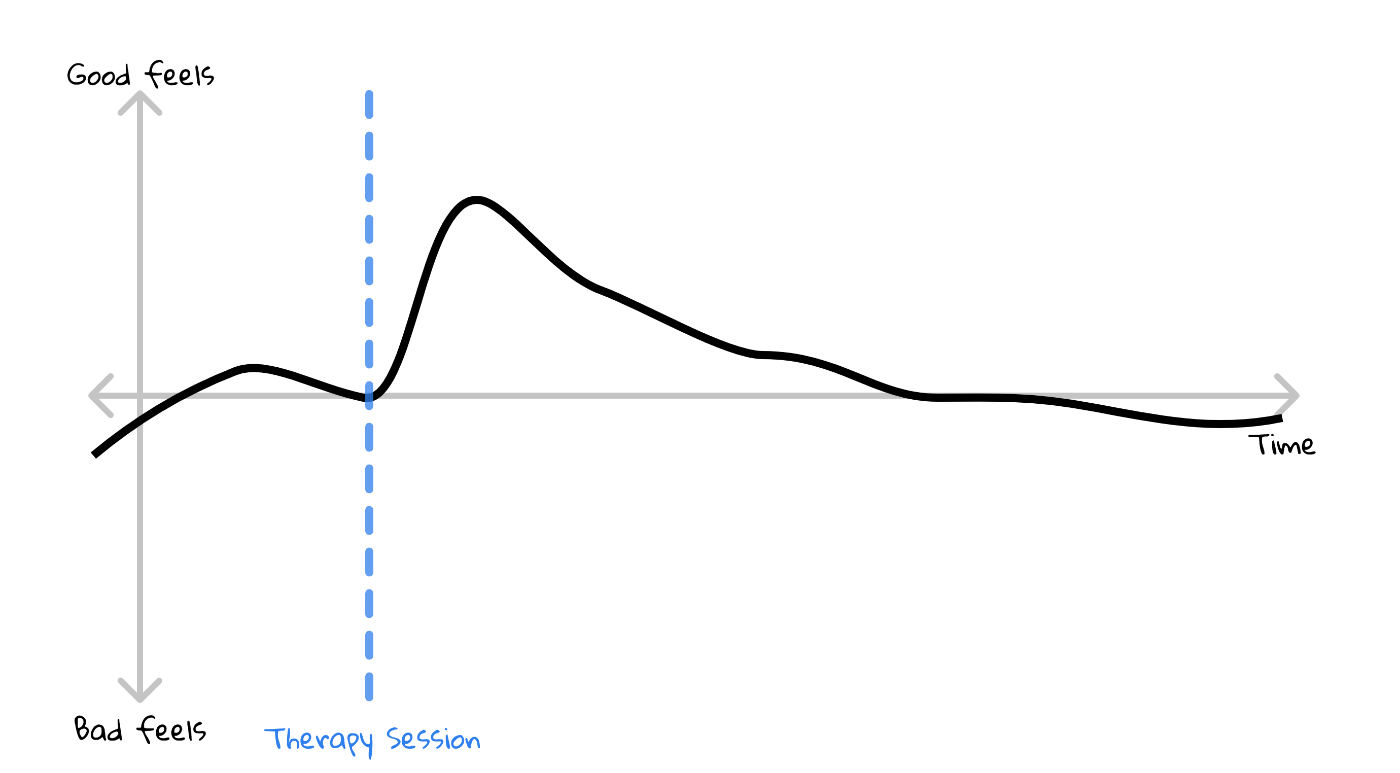
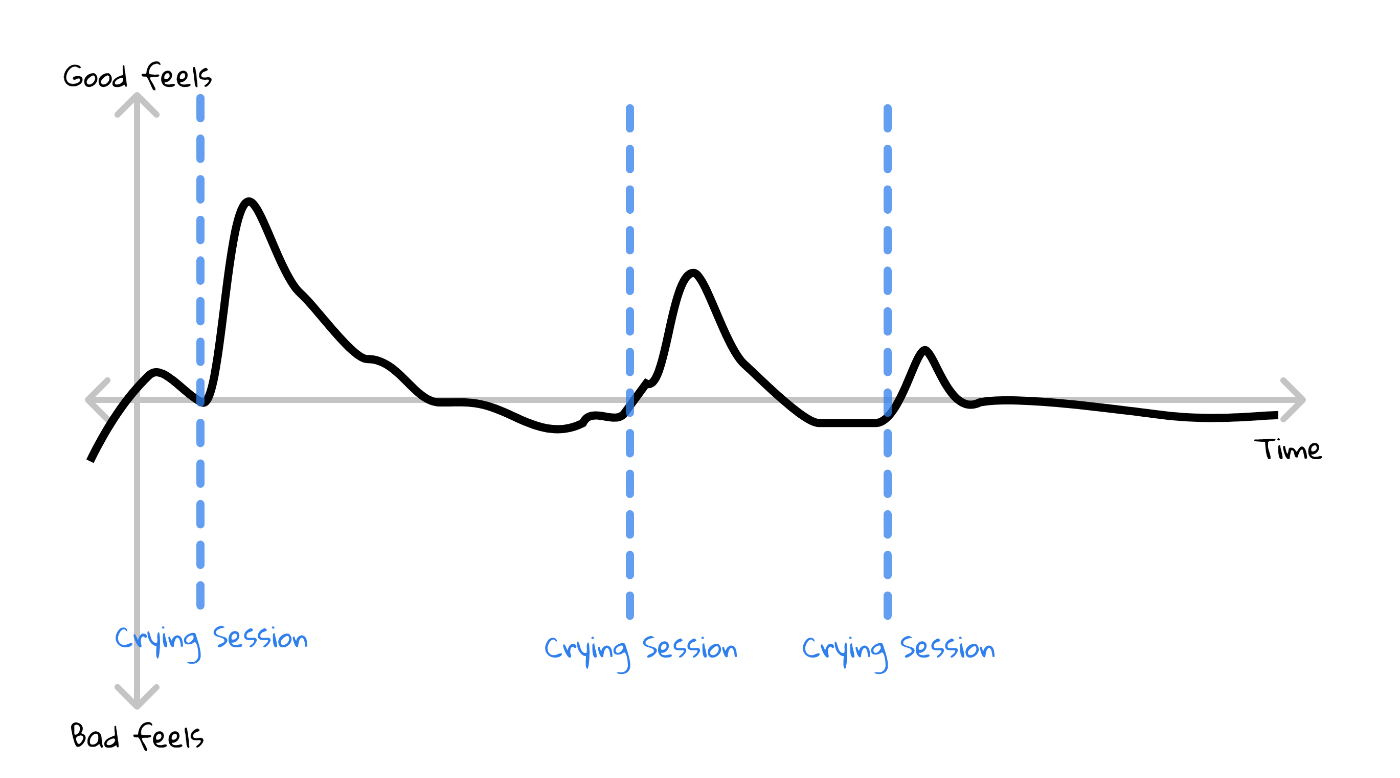
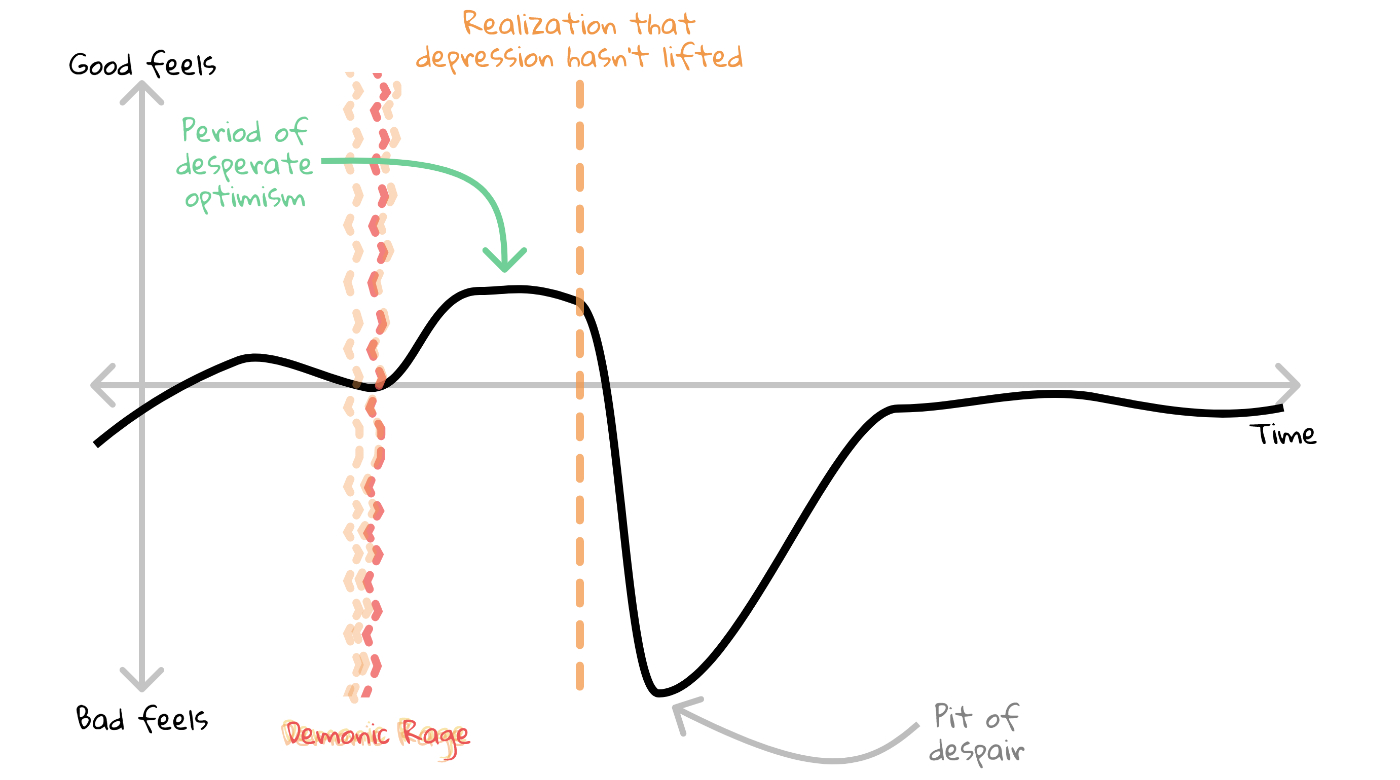
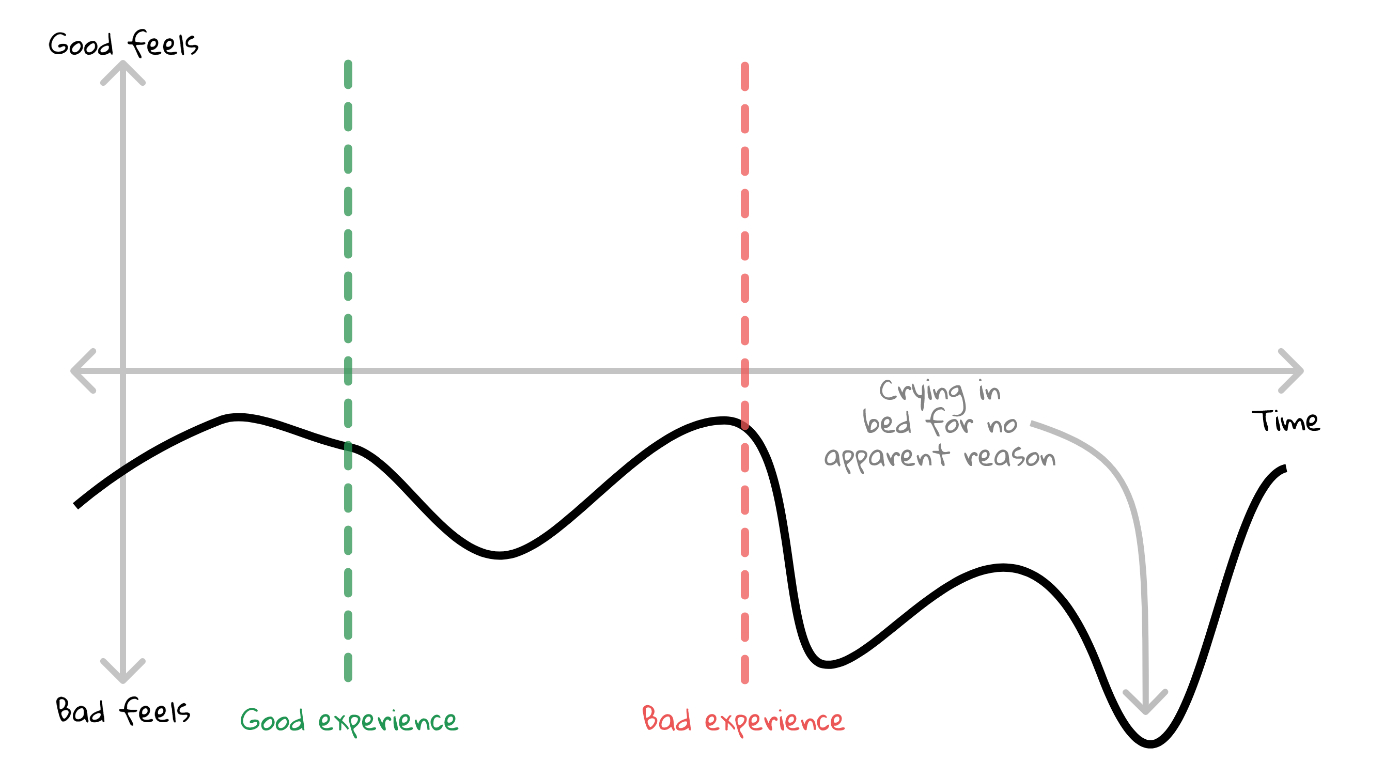
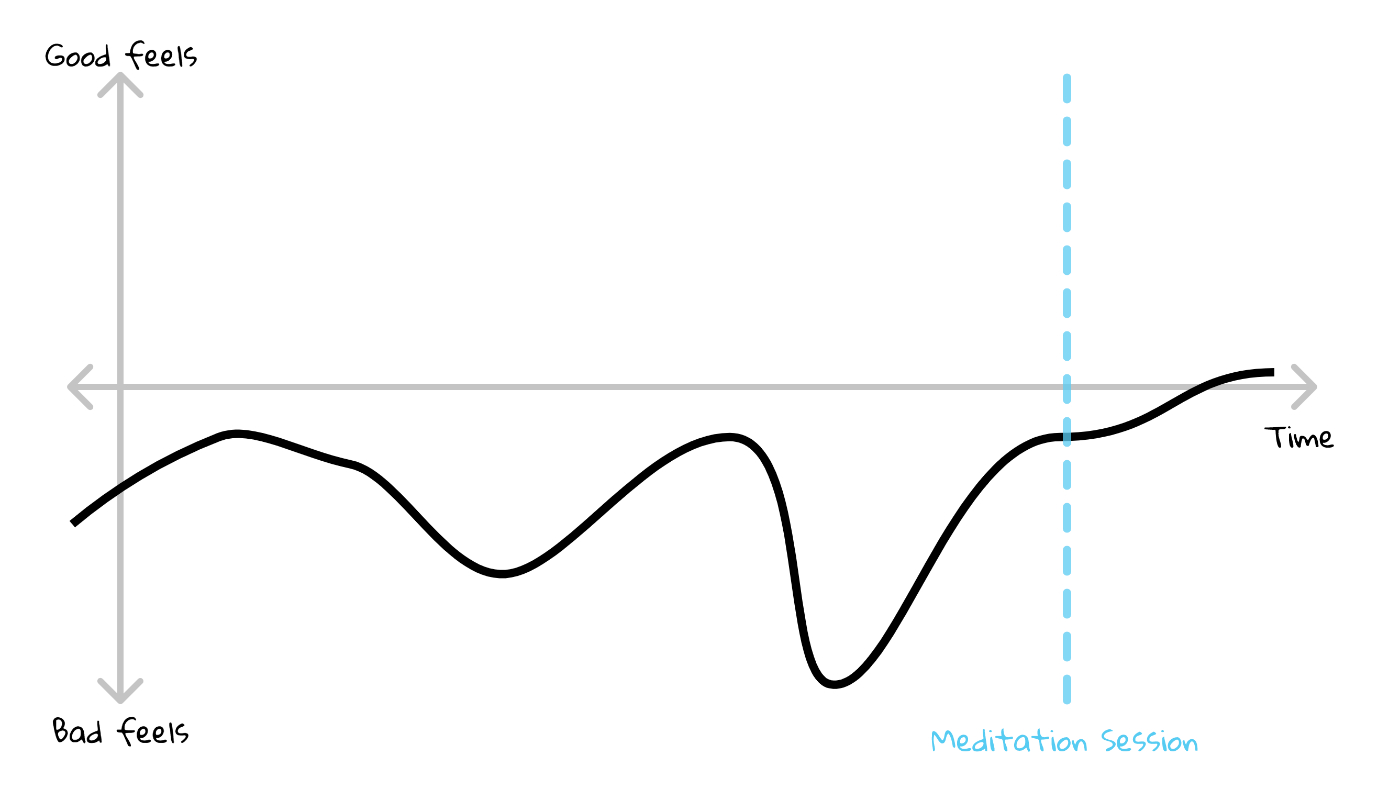
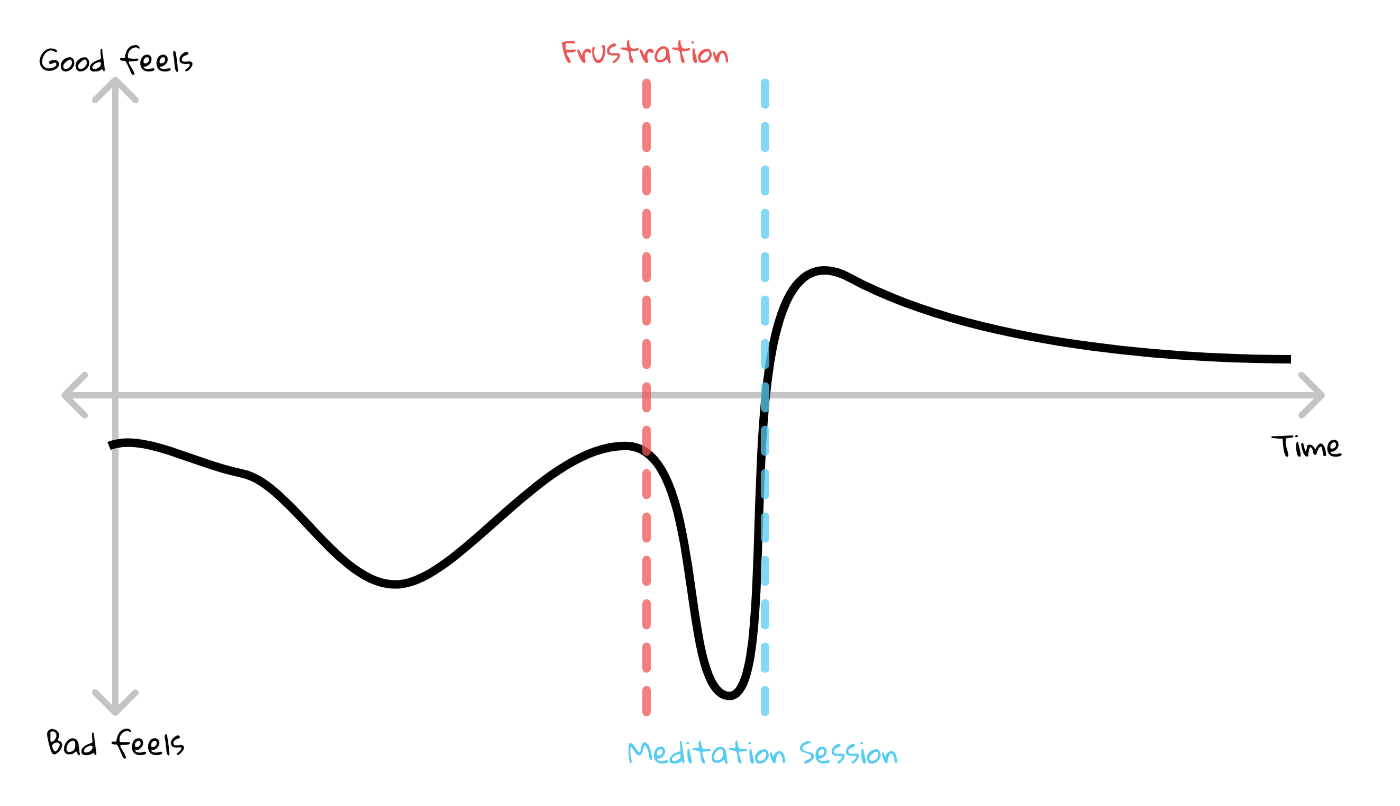
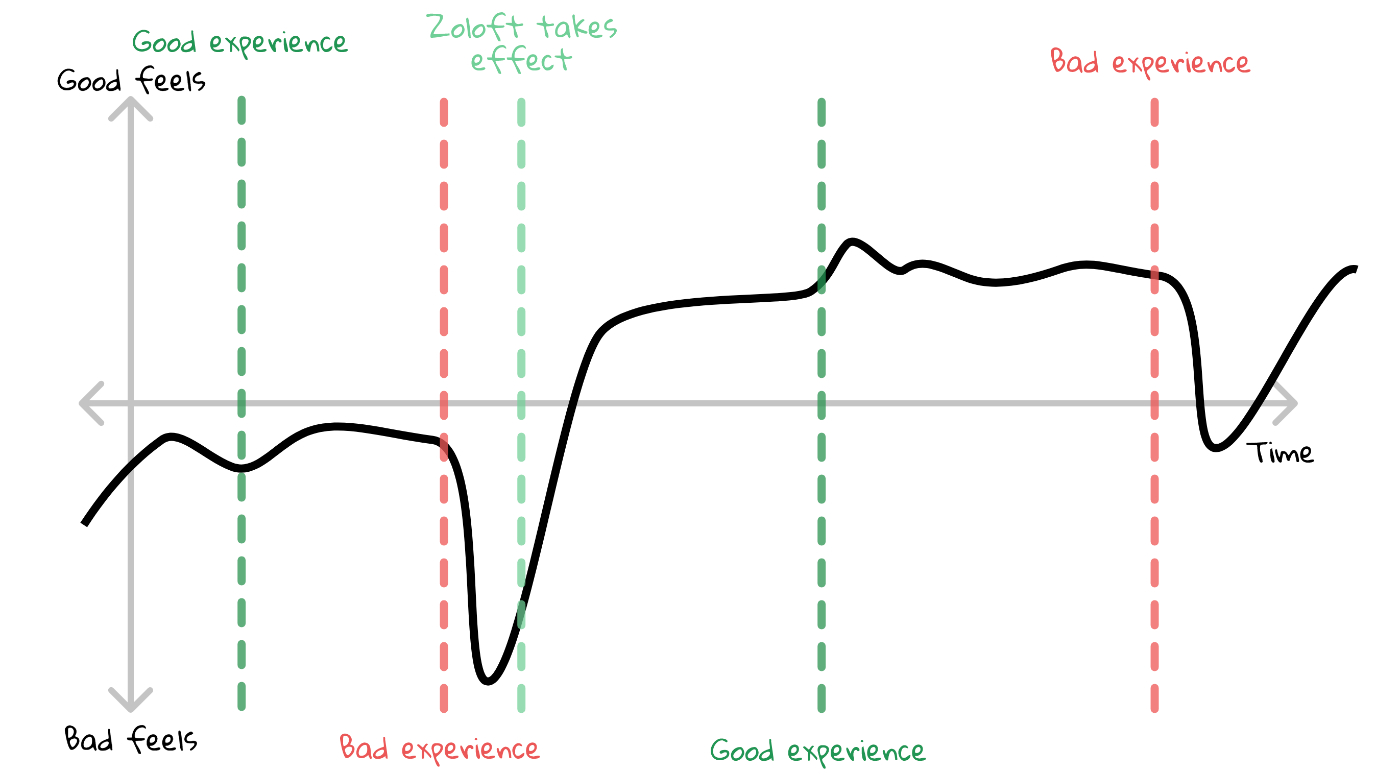
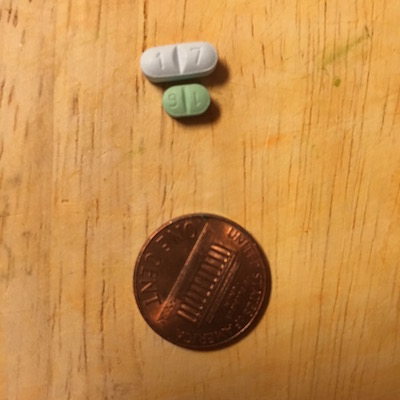
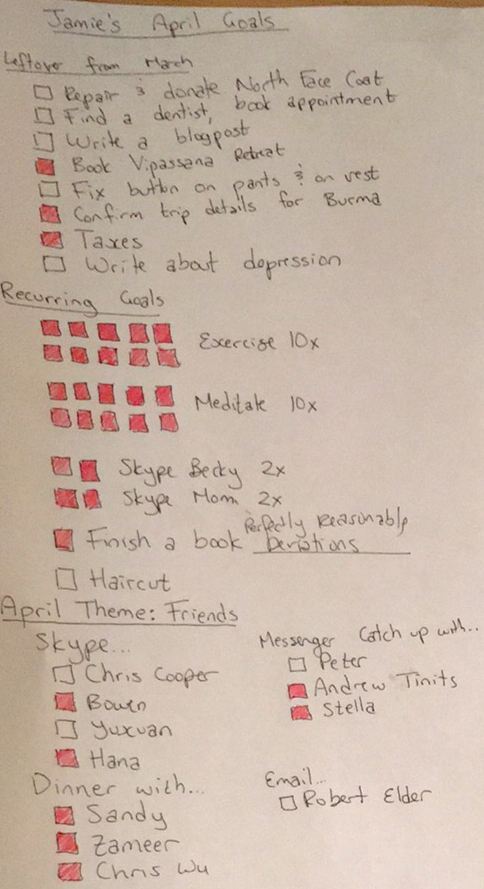
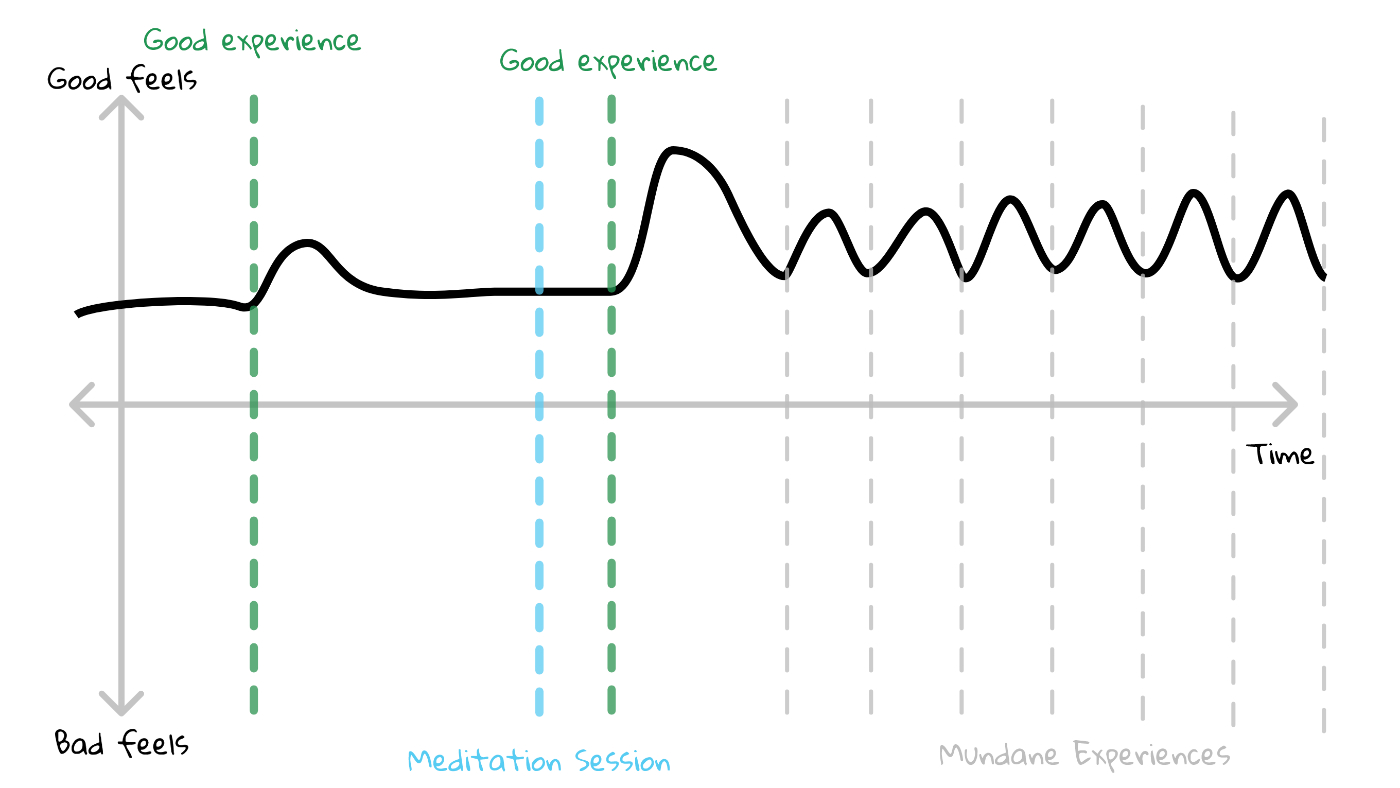
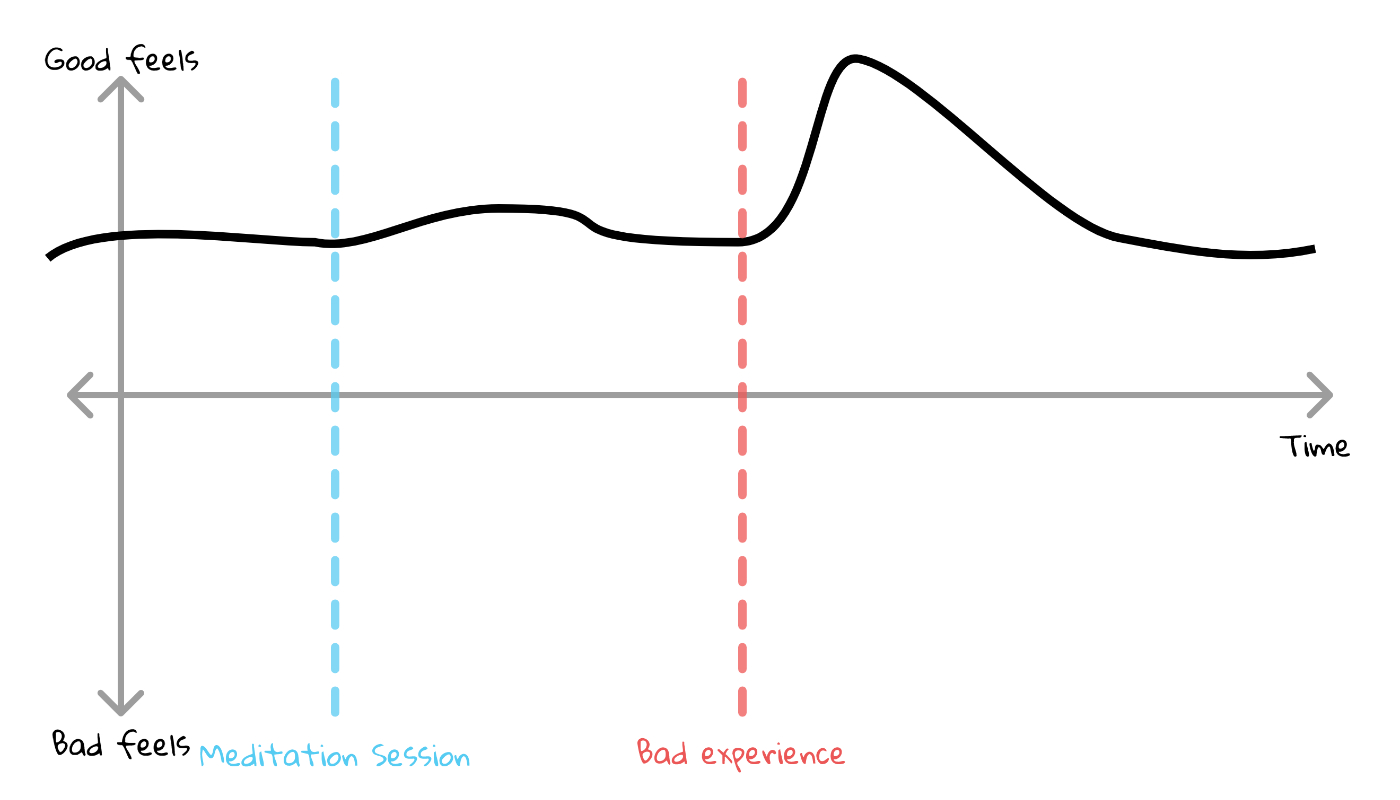






Comments
Don't have an account? Sign up!
It takes courage to write about our issues, so well done.
As for medidation, I recommend Sam Harris' book and the Waking Up app.
What an incredible article. Thanks so much for taking the time to put this together and show us a window to your struggles.